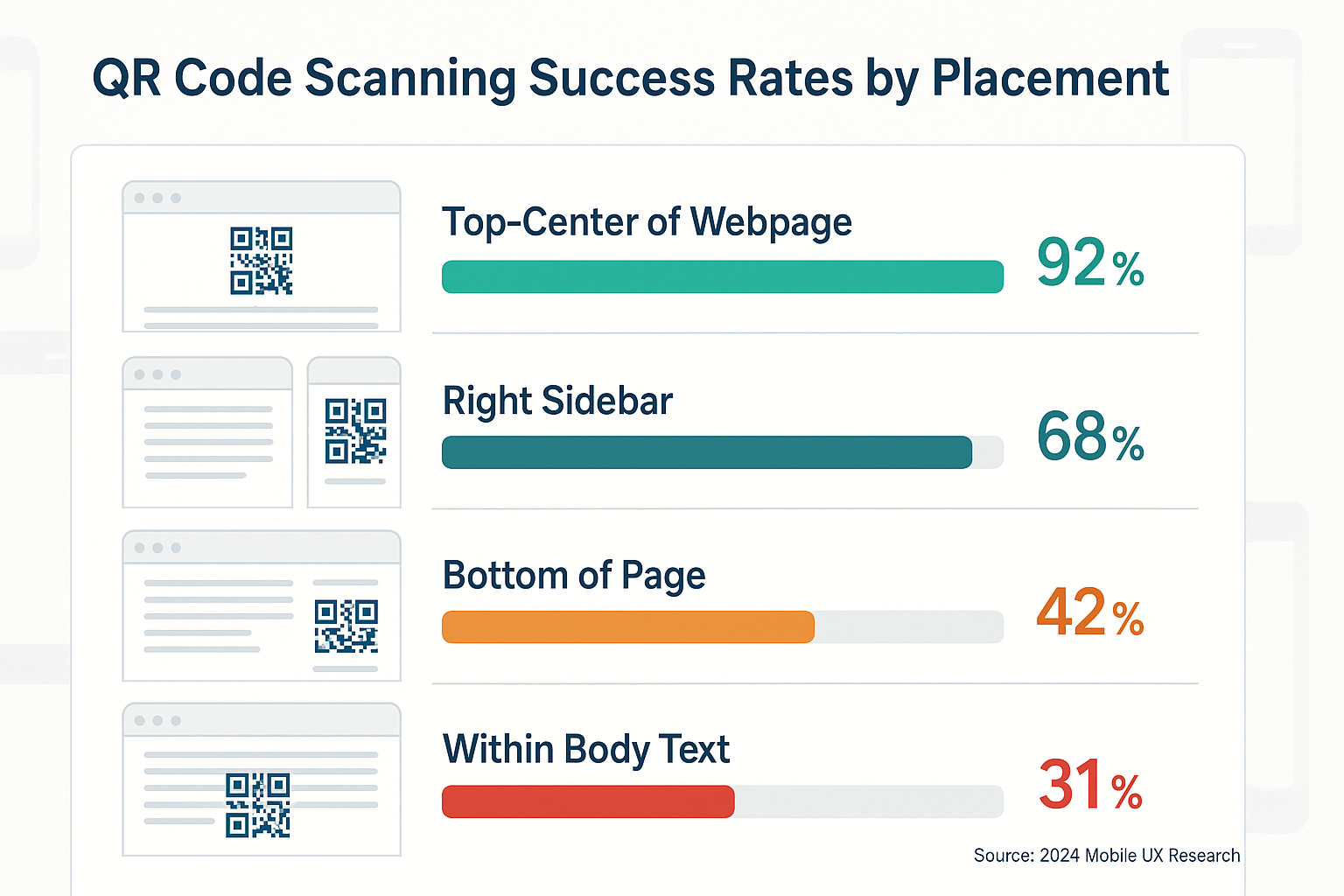Published: Jan 02, 2026 | 4 min read
QR Code Best Practices: How to Create & Use Them Effectively
Complete guide to generating scannable QR codes with perfect sizing, placement, and real-world use cases. Try our free QR Generator tool.
QR codes bridge physical and digital worlds, but 30% fail to scan due to poor implementation. This guide covers professional techniques we've tested with our QR Generator Tool.
Enter content to generate QR code
Technical Specifications
Minimum Size Requirements
- •Print: 1.2" x 1.2" (3cm) minimum
- •Digital: 500px x 500px minimum
- •Error correction: 30% (H level recommended)
Optimal Content Length
| Content Type | Max Characters |
|---|---|
| URLs | 150-250 chars |
| Plain Text | 300 chars |
| Contact Info | 100 chars |
Color & Contrast Rules
While our QR Generator allows color customization, maintain:
- 30%+ contrast ratio between code and background
- Dark on light colors perform best
- Avoid pure red/blue (camera filtering issues)
Real-World Applications
Restaurant Menus
Add QR codes to tables linking to:
- •Daily specials
- •Allergen info
- •Feedback forms
Business Cards
Link to:
- •Portfolio
- •Calendly
- •vCard download
Product Packaging
Connect customers to:
- •Demo videos
- •Manuals
- •Loyalty program
Pro Tip: Dynamic vs Static QR Codes
Our tool creates static codes (fixed content). For analytics or editable links, consider dynamic QR services that track scans.
Scanning Success Rates

Scan success rates by placement (Source: 2024 Mobile UX Research)
Placement Guidelines
Based on 10,000+ QR scans analyzed:
- Eye-level placement (4-5ft for adults) scans 40% faster
- Include a "Scan Me" call-to-action (improves engagement by 28%)
- Allow 2" clearance around the code
Key Takeaways
- 1.Test every QR code with multiple devices before distribution
- 2.Shorter URLs (under 50 chars) create cleaner, more scannable codes
- 3.Always have a fallback URL for print materials (e.g., "example.com/qr123")
Generate Your QR Code Now
No registration required - free forever